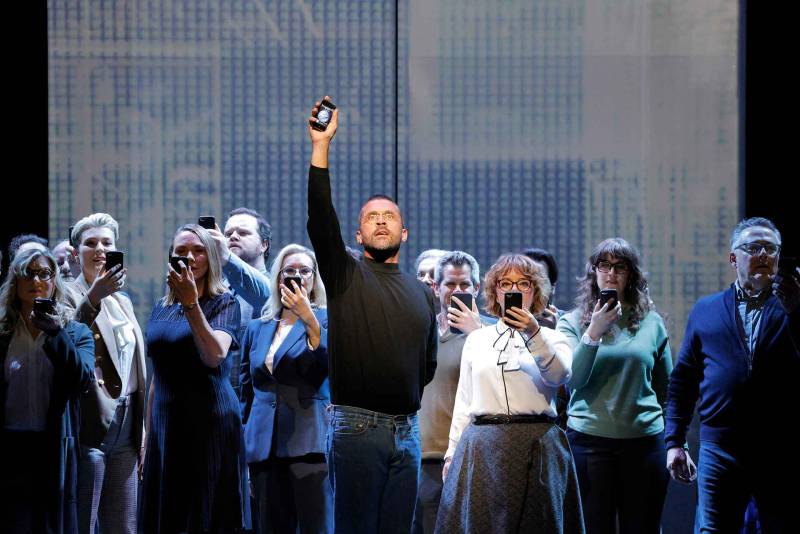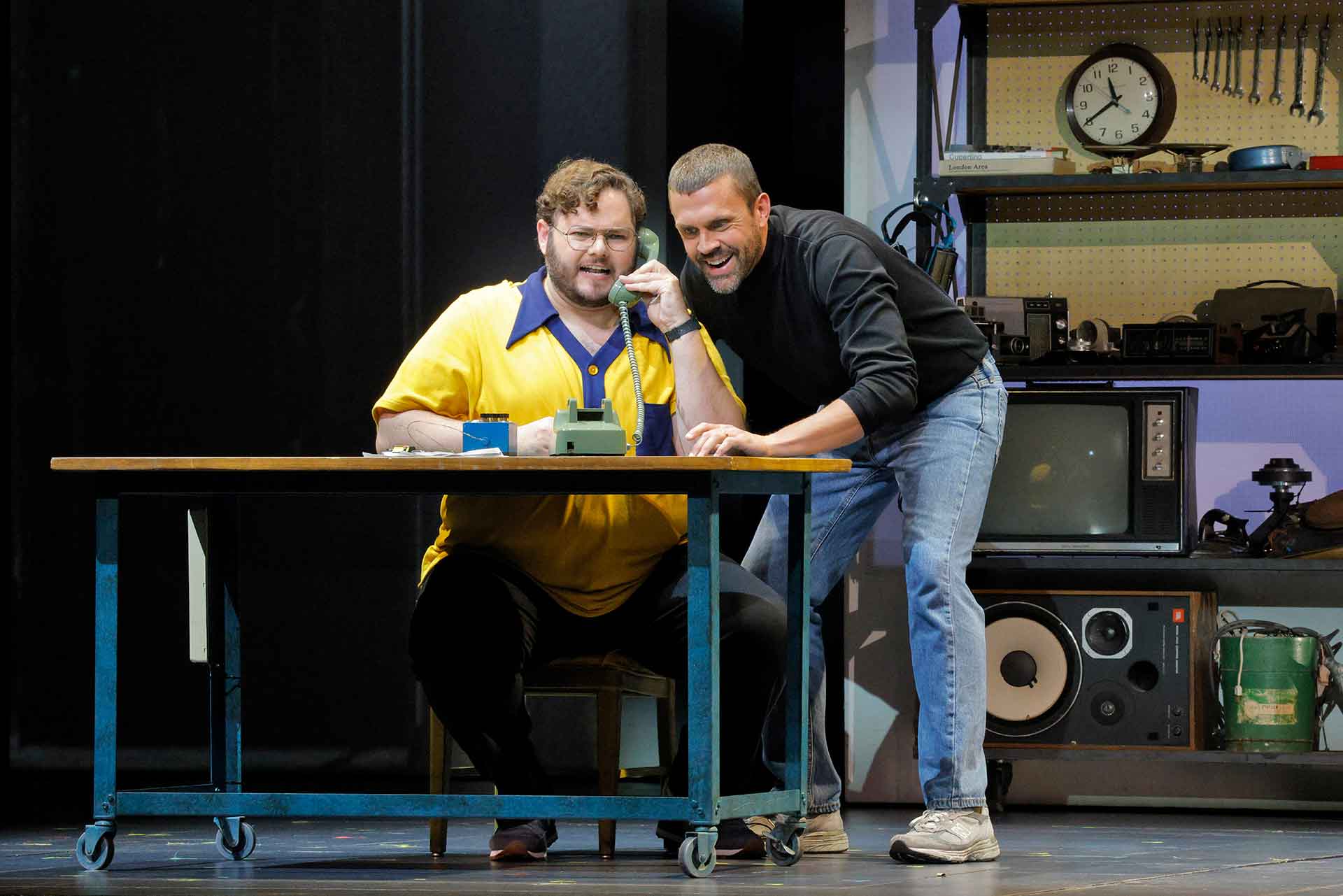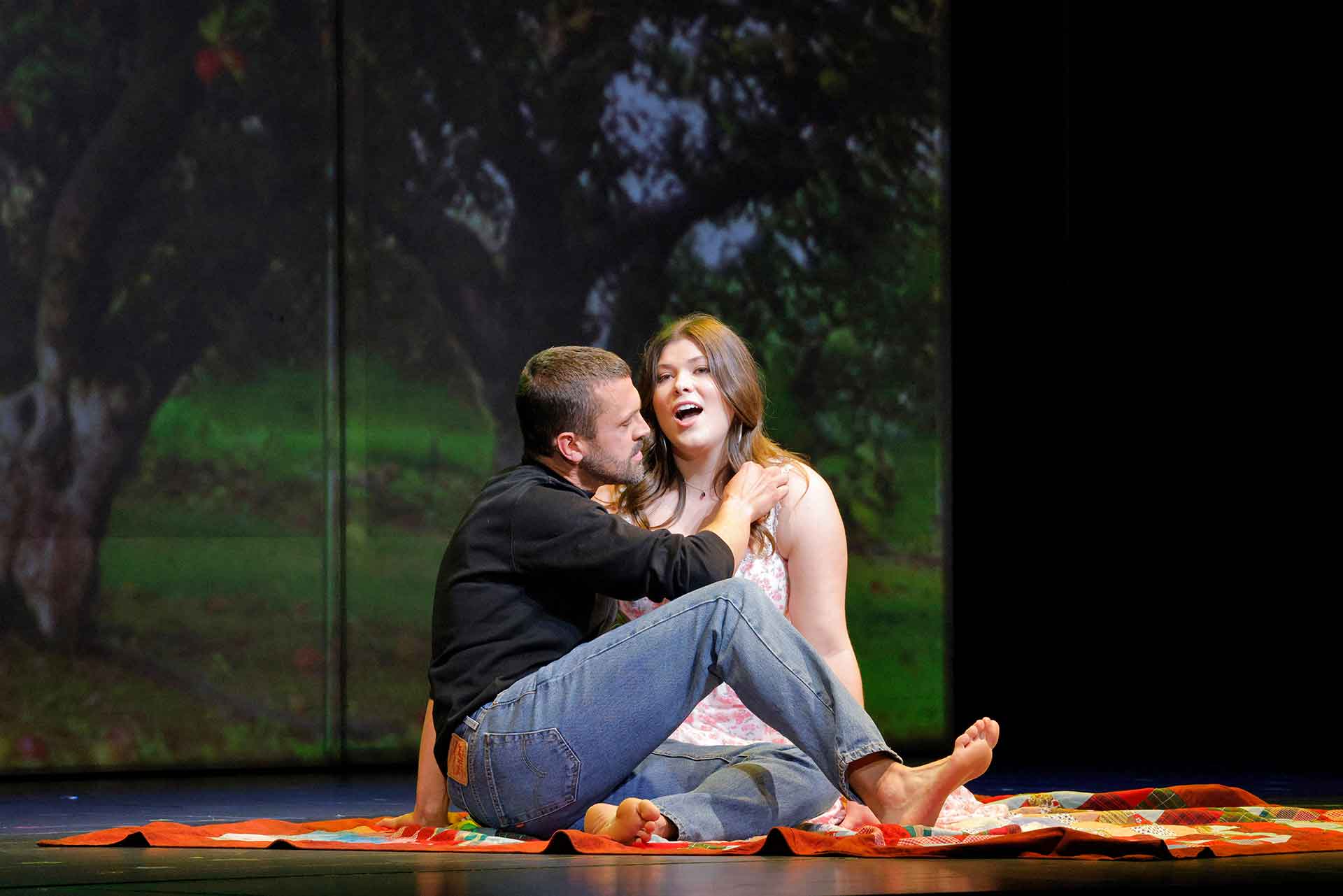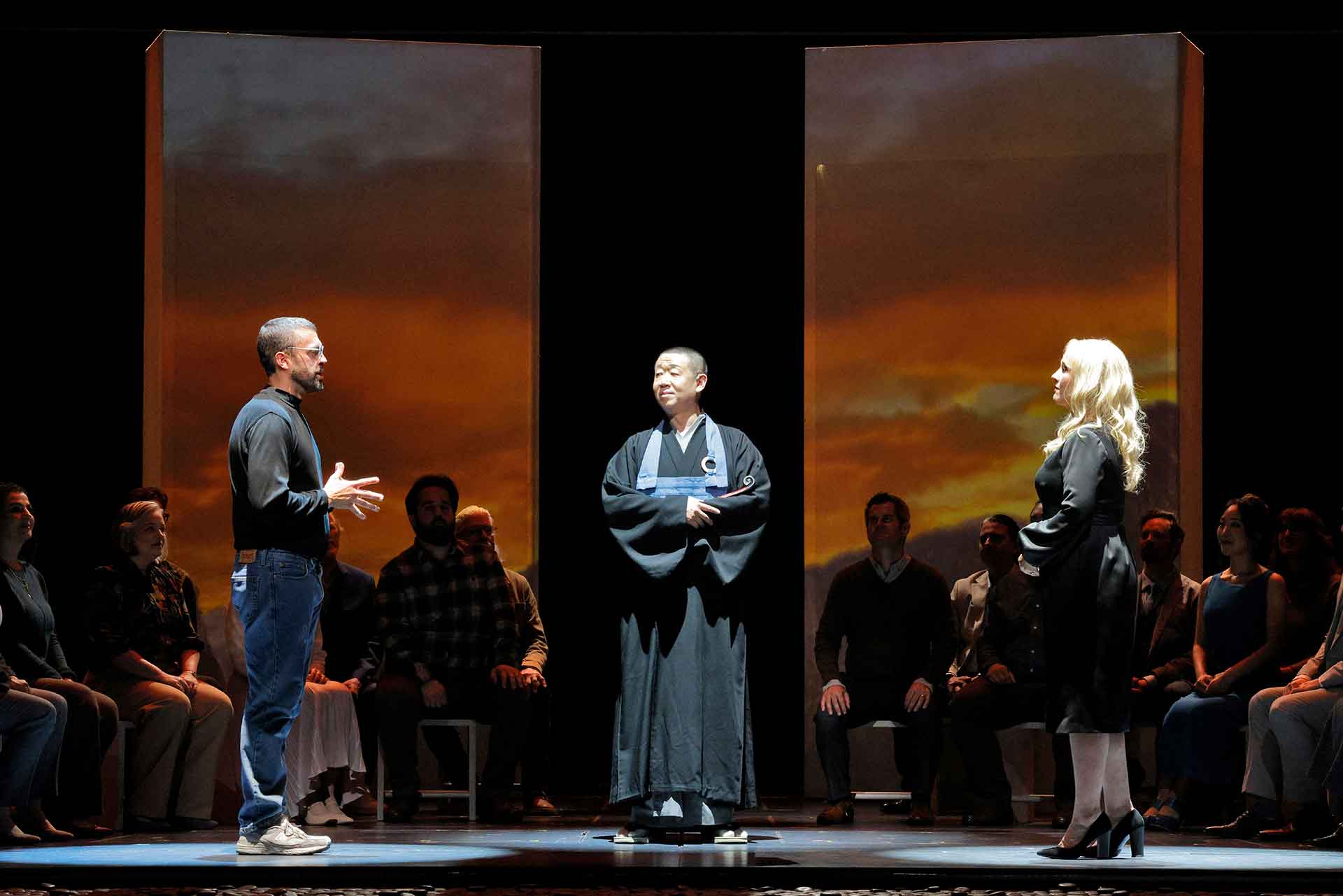If you hear the words “Steve Jobs opera” and think, “great, a patently desperate attempt to attract tech donors to the arts by presenting a commercial for Apple that fawns over its billionaire CEO,” I am happy to report that you are wrong.
The (R)evolution of Steve Jobs, running at the War Memorial Opera House now through Oct. 7, is remarkably enjoyable, and not at all a rose-tinted portrait. It’s also a perfect introduction for people who’ve never been to the opera: It’s shorter than your average Hollywood blockbuster, it’s sung in English and it’s about a device which two-thirds of all California residents carry in their pocket. Bring the kids — I did.
I also admit I approached The (R)evolution of Steve Jobs with some skepticism. Its composer, Burlingame’s own Mason Bates, has enjoyed patronage from tech giants like Cisco and Google, and has written such silicon-themed works as The Rise of Exotic Computing and Garages of the Valley. Who better to attract the tech sector, which has historically declined to support arts organizations like the opera? And would that require glossing over Jobs’ abusive tendencies, and celebrating rather than criticizing the far-reaching and detrimental transformations brought by the iPhone?
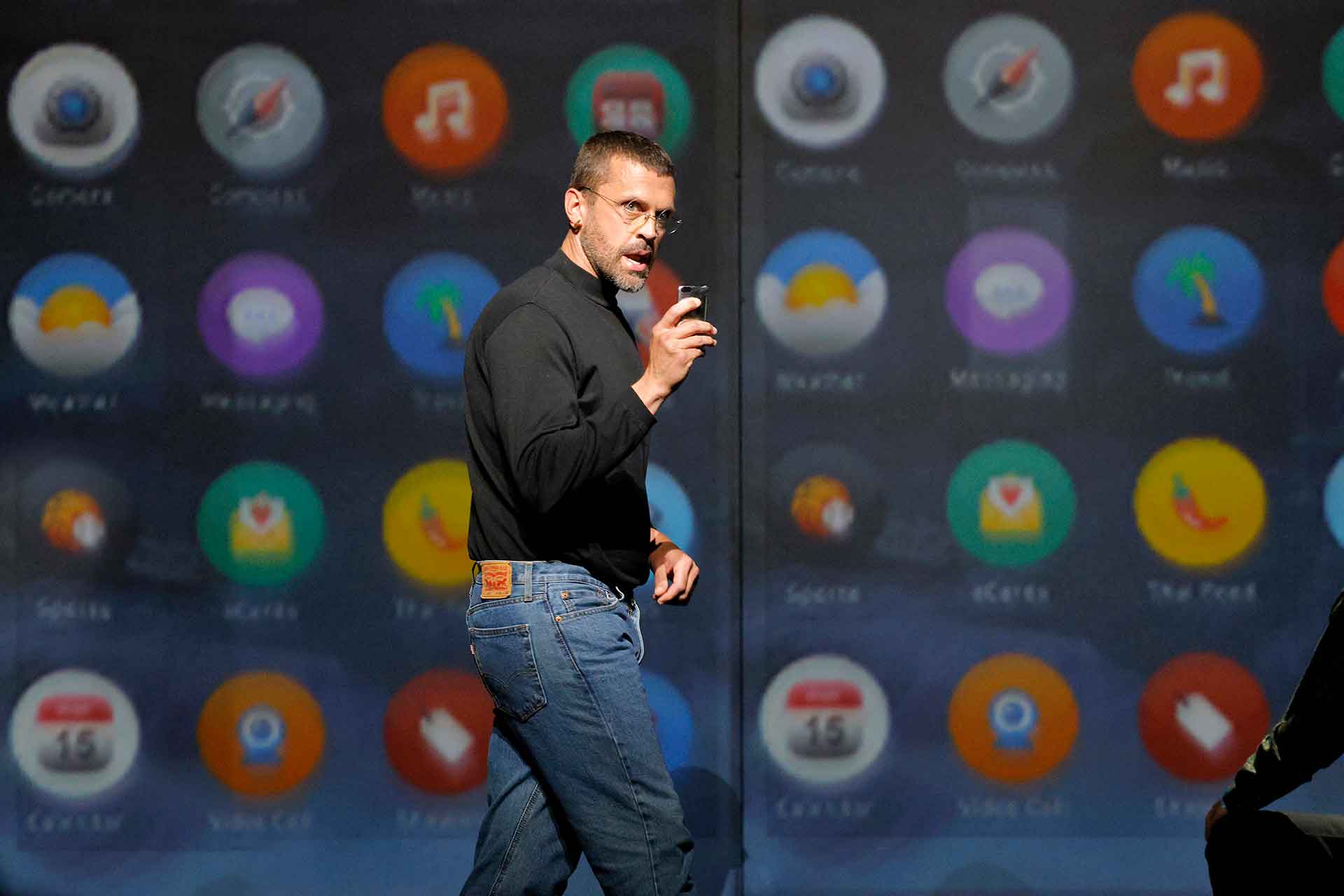
Instead, The (R)evolution of Steve Jobs — finally seeing its Bay Area premiere after runs in seven other cities – directly addresses Jobs’ denial of his first child and his cruelty to her mother. It shows Jobs yelling at staff, demanding impossible deadlines. It depicts a man who sought inner peace for himself while haranguing those around him, and connected with nature while creating an addictive device that would distance much of humanity from it.
